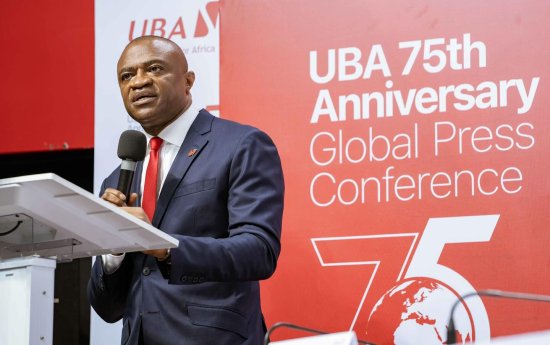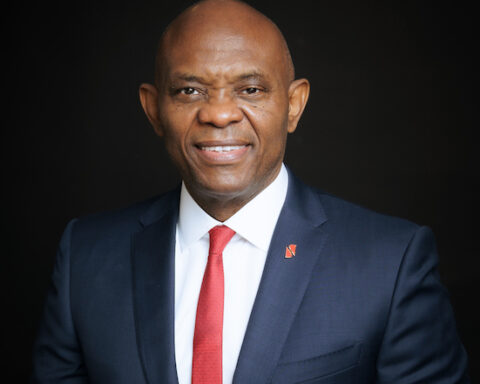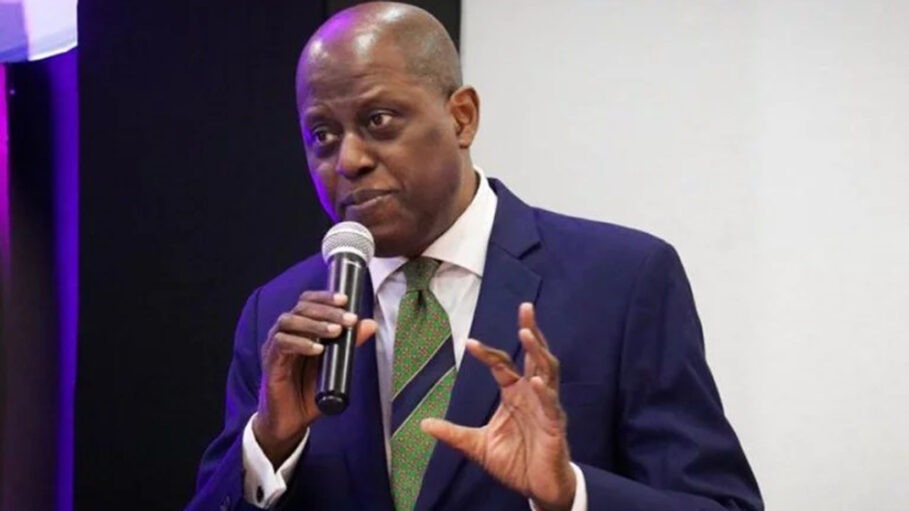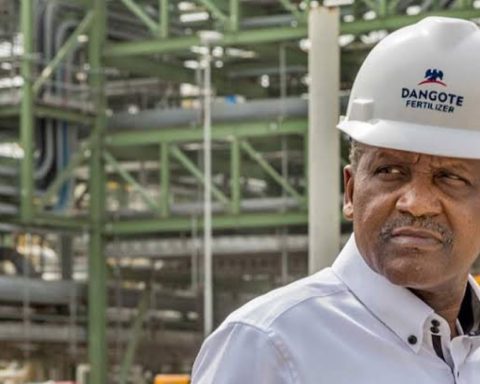Group Managing Director of United Bank for Africa PLC, Mr Oliver Alawuba, has underscored the critical role of banks’ recapitalisation in strengthening Nigeria’s economy.
Prime Business Africa recalls that the Central Bank of Nigeria (CBN) had in March ending, directed all banks in different categories to increase their capital base within the next two years. While tier one banks were required to raise N500 billion, tier two banks were to raise their capital base to N200 billion. Banks in other categories and areas of coverage were to raise theirs to N50 billion, N20 billion, and N10 billion respectively.
Join our WhatsApp ChannelMr Alawuba, who spoke during the global press conference of UBA’s 75th anniversary held at the bank’s headquarters in Lagos on Monday, said the recapitalisation exercise would make financial institutions in the country more resilient and help the Federal government achieve the $1 trillion economy target.
The UBA GMD said the bank has begun moves to comply with the CBN’s mandate on recapitalisation by first engaging with its stakeholders on the best way forward and that the option to be adopted would depend on the outcome of the ongoing consultations.
Alawuba said UBA complies with all monetary policy directives of not just the CBN but in other countries where they operate.
He stated that the decisions taken so far in the ongoing economic reforms by the current administration in Nigeria such as fuel subsidy renewal, and harmonisation of exchange rates, are right, adding that though the reforms may have come with initial pains, they will all fizzle out after sometimes.
The UBA boss, who highlighted various milestone achievements of the bank over the years, said innovation and digital transformation are at the heart of the bank’s strategy “for future growth and competitiveness.”
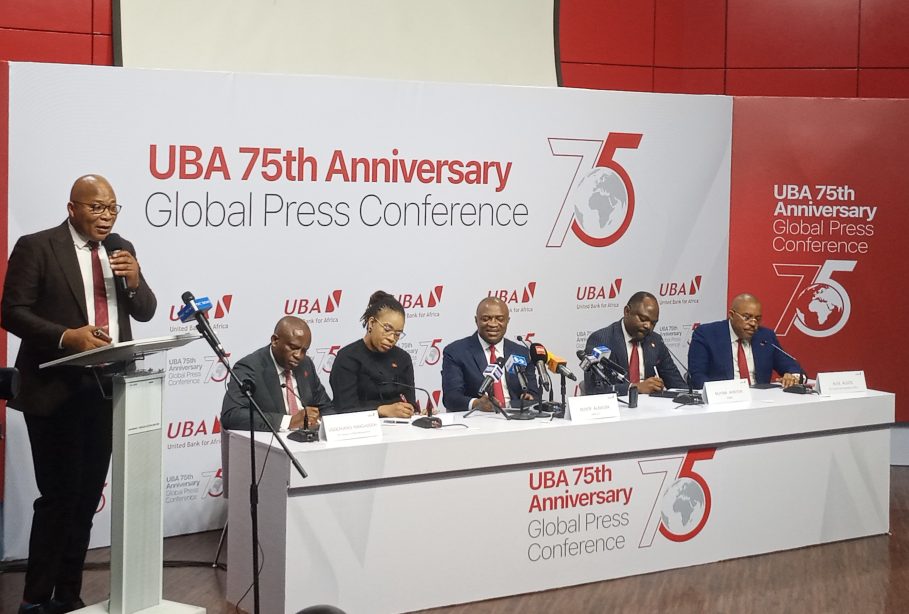
He cited other efforts the bank is making in boosting businesses across Africa through collaboration and partnerships such as the $6 billion SME funding agreement signed with the African Free Trade Area (AfCFTA).
On customer satisfaction, Alawuba said the bank has many schemes on the ground and plans to roll out more as its customer base continues to grow moving up to 45 million customers across Africa.
He asserted that the vision of going into various countries to set up subsidiaries and branches is paying off, adding that they contribute more 50 per cent of UBA’s gross income. “All the subsidiaries in Africa are profit-making and all of them are contributing more than 50 per cent of the gross income of UBA and this trend will continue. So, the vision of going into these countries is paying off and will continue to pay off. We will continue to invest in Africa and deepen our market share.
“Our market share in those countries is improving and if you go to some of these countries, UBA is one of the top three banks and they appreciate the contribution of the bank to their economy,” he stated.
Speaking on the $6 billion SME funding agreement with AfCFTA, the Group Deputy Managing Director, UBA, Muyiwa Akinyemi, said the bank had after thorough research, realised that four sectors in Africa – automotive, pharmaceutical, logistics as well as transport – rely a lot more on import, and therefore decided to work with AFCFTA on how to substitute the import for the companies in those sectors to produce locally. He added that the aim is also to enhance intra-Africa trade.
“We stepped out to make a commitment of $6 billion to SMEs to improve their capacity to substitute the importation of these items in these four sectors (automotive, pharmaceuticals, logistics and transport),” Mr Akinyemi stated.
On the source of funding, the UBA DMD revealed that the bank has more than enough capacity to do it as part of its SMEs business drive in Africa, especially in the 20 countries where it operates. He said UBA has a partnership with Development Finance Institutions (DFIs) such as Afrexim Bank, the Africa Growth Fund, among others.
Akinyemi maintained that the funding is not a major issue and has no relationship or impact on the bank’s programmes in Nigeria such as the ongoing effort to shore up the capital base as mandated by the CBN.
On his part, the Executive Director of Finance and Risk Management, UBA, Ugochukwu Nwaghodoh, while also concurring that the recapitalisation exercise would strengthen the economy, expressed optimism that UBA would raise the N500 billion to meet the new capital requirement before the March 2026 deadline given by CBN.
READ ALSO: UBA Counts Achievements At 75, Envisions To Be Role Model For African Businesses
“The central bank has said that every bank must have N500bn in pure share capital and that was not necessarily related to the existing shareholder funds. Obviously, it will strengthen the banking system and the banks in Nigeria will be able to do a lot more in terms of the economy,” Mr Nwaghodoh stated.
“The central bank gave recommendations on how to achieve this, either by raising additional funds, mergers and acquisitions and you can choose not to raise more funds and step down your license to the level where your current capital can support.”
He said that with UBA having an international licence, the bank would maintain its operations across Africa and other centres across the world where it has presence.
He said the bank has engaged with financial advisors, and is currently awaiting approval from shareholders to enable it to raise the funds. According to him, shareholders’ approval would come latest by Friday.
“We note, however, that we are committed to achieving this well ahead of the deadline,” he added.
Victor Ezeja is a passionate journalist with seven years of experience writing on economy, politics and energy. He holds a Master's degree in Mass Communication.


